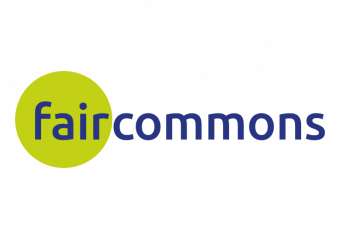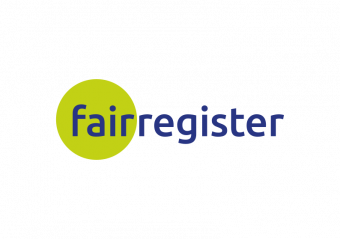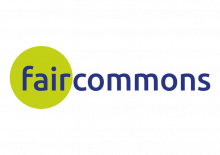
Commons Activities
Creative Commons and fairregister
As part of its Commons activities, fairkom has been managing Creative Commons in Austria since 2004.
In 2006 RegisteredCommons was presented as a complementary service in Berlin at the WizardOfOs conference. With the faircommons project RegisteredCommons was redeveloped as fairregister in 2023.
"Free, Fair and Alive - The Power of the Commons"
by Silke Helfrich and David Bollier
Commons - Commoning - Commoner
All three terms are derived from the Latin words >>cum<< and >>munus<<. >>cum<< means >>with<< and connects something; >>munus<< means service, duty, obligation, and sometimes gift. Both together, >>cum<< and >>munus<< - for instance in communion, communication and communism - connect talking and listening or rights and duties. The >>cum<< also indicates that a matter is also related to others.
Thus, French scholars Pierre Dardot and Christian Laval write, commons >>denotes not only what is done together<< but also the commoners themselves - >>those who have >common tasks<<.
These remarks are taken from the book "Free, Fair and Living - The Power of the Commons" by Silke Helfrich and David Bollier, which can be read and downloaded here.
Commons as a social form of life?
A commons emerges when people engage in the social practice of commoning, consciously self-organizing as peers and developing cooperative forms, creating and providing assets in a needs-based manner.
Every commons comes into being through commoning.
Commoning as creative action is characterized by the fact that things or immaterial services are produced and made available jointly or collaboratively on the basis of real needs.

fairregister
New development of RegisteredCommons
fairregister emerges as a service from the netidee funded project faircommons and represents the new development of RegisteredCommons.
With fairregister, creative works can be registered and provided with an appropriate license. In case of plagiarism or misuse, an author can prove authorship at the time of registration. Users can search for licensed works in order to use them legally for their own work.

Creative Commons
Licensing toolbox for the publication of creative works
The idea behind Creative Commons licenses is that creators can indicate the extent to which others may dispose of their creations. While copyright can mean that all rights are reserved, Creative Commons licenses mean that some rights are reserved. The author can say, this can be done with my work, for other things permission is required.
Label Commons Public Licence
Use a label under certain conditions
The Label Commons Public License (LCPL) is intended to give the public permission to use a label under certain conditions. Labels are used as a sign, term, or trademark and can be applied to digital media or tangible objects.
One use case for LCPL is to clarify the usage rights of a label used by a larger community.
Domain Commons
Manage shared domains in trust
For projects or initiatives that need a domain for a non-profit purpose, we take over its administration. This is to relieve initiators by taking care of the regular payment of domain fees, DNS entries and hosting.
Open Source
Open Source Software as Commons
Software can also be interpreted as a commons when people come together for a common task, software is developed collaboratively and applications are made available for real needs. Open source software is characterized by the fact that the code is visible and openly accessible to all. No license fees are charged for its use. We have compiled an overview of applications and open source projects.

